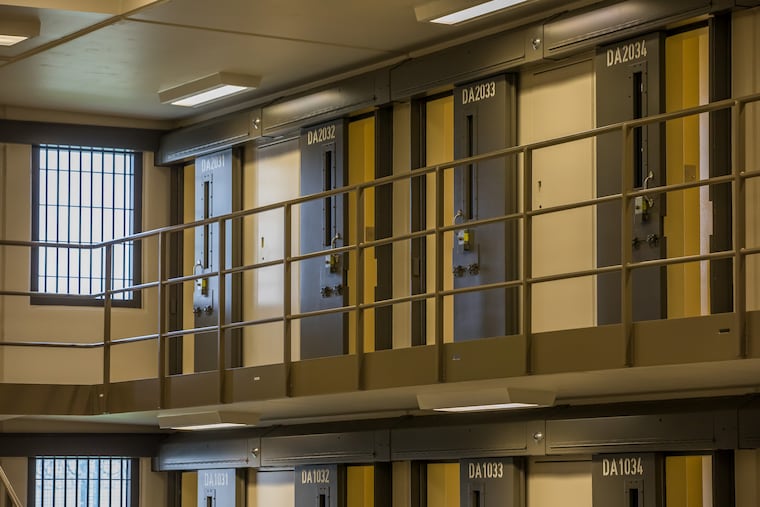Philly man held in solitary confinement 33 years must be let off death row, court rules
It is the latest in a series of recent rulings that have forced Pennsylvania's Department of Corrections to dismantle traditional death-row solitary confinement.

Ernest Porter spent 33 years in a 7-by-12-foot cell with a roughly 6-inch-wide window. He was allowed out for 10 hours a week — but leaving the cell meant being strip searched and then shackled. Exercise meant time spent in a cage, alone or with one other prisoner.
That was life on death row in Pennsylvania state prison. And Porter’s was among the longest solitary-confinement stints on record, though his death sentence was vacated in 2003.
But now, Porter, 59, and six other prisoners have been moved out of death-row solitary into general population, following a precedent-setting 3rd Circuit Court of Appeals ruling in September that found the conditions violated the Eighth Amendment’s protection against cruel and unusual punishment.
It is the latest in a series of recent rulings that have forced the state to dismantle traditional death-row solitary confinement by moving prisoners up for resentencing into general population and reforming treatment of those who continue to face execution. Last year, the state significantly increased out-of-cell time and other quality-of-life measures for those on death row, though the coronavirus pandemic subsequently put the entire state system on effective lockdown.
On Wednesday, the court affirmed its decision by denying a Department of Corrections request for a rehearing before a panel of judges.
“It establishes a major circuit court precedent, the first of its kind, holding that the mere fact of somebody spending such a prolonged time in solitary confinement is evidence to rely on in a finding of cruel and unusual punishment,” said Bret Grote of the Abolitionist Law Center, one of Porter’s lawyers. “This puts a significant deterrent on reimposing these conditions of prolonged solitary confinement.”
Porter was convicted of fatally shooting South Philadelphia beauty shop owner Raymond F. Fiss, Jr., 52, during a 1985 robbery. The crime inflamed racial tensions in the community, where outraged white residents rallied and marched on City Hall.
While federal courts previously found that a prisoner whose death sentence was vacated can’t be kept on death row, the Pennsylvania Department of Corrections (DOC) argued that didn’t apply to those whose proceedings had been stayed in federal court.
A DOC spokesperson declined to comment.
Prison officials have argued death-sentenced inmates pose a danger to general population because they have “nothing left to lose.” But Porter’s lawyers said he’s maintained a perfect disciplinary record — even as his mental health has deteriorated in isolation, causing “severe anxiety, depression, panic, paranoia, bipolar mood swings, and at times suicidal impulses,” according to his court filing.
Now, Porter’s complaint against the prison will return to federal district court for a possible civil trial. The DOC argued in briefings it should not have to pay damages: “Because no prior case from this court — or any other court — clearly established the wrongfulness of the DOC’s interpretation, qualified immunity shields the DOC officials from liability.”
Isolation on death row has drawn increasing criticism, amid a mounting number of exonerations involving cases in which the death penalty was threatened or imposed — including 13% of convictions overturned last year, according to the Death Penalty Information Center.
Daniel Greenfield, a lawyer for the MacArthur Justice Center representing Porter and another prisoner in a similar situation, said the decision means two of the nation’s 12 circuit courts have now held that those on death row retain basic constitutional protections.
“Previous decisions found what a death sentence really meant was you could throw away the key and not really examine the conditions under which they were held. Nothing is too barbaric," Greenfield said. “This decision really throws cold water on that.”